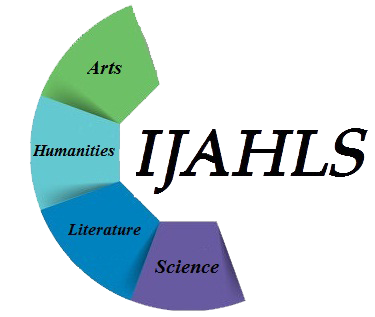
Plagiarism Policy
Plagiarism is evolved when an author involves in wrongful appropriation, stealing and others language, thoughts, ideas, or expressions and representing them as their own original work. Plagiarism is considered as an academic dishonesty and a breach of journals publication ethics.
The following types of plagiarism are considered by IJAHLS:
1. Full Plagiarism: Contents that are previously published without any changes to the text, grammar and concepts is considered as a full plagiarism.
2. Partial Plagiarism: Contents in the form of a mixture from multiple sources, where the author has extensively rephrased the text is termed as partial plagiarism.
3. Self Plagiarism: Reuse of complete or portions of pre published research by the same author is known as self plagiarism.
Originality
By submitting Author(s) manuscript to the journal it is understood that it is an original manuscript and is unpublished work and is not under consideration elsewhere. Plagiarism, including duplicate publication of the author's own work, in whole or in part without proper citation is not tolerated by the journal.
In the case of a publication being submitted that was originally published in another language, the title, date and journal of the original publication must be identified by the authors, and the copyright must be obtained. The editor may accept such a translated publication to bring it to the attention of a wider audience.
In case author wants to use material from the other work then it is mandatory to cite the same in references. Else the author needs to change the language completely and use his/ her own language. IJAHLS feels adequate referencing is very important to ensure that manuscripts are not deemed to be plagiarized.
IJAHLS Publications does not encourage any form of Plagiarism and duplicate submissions. Hence, we strongly recommend the authors to thoroughly check the content of the article before submitting it to the journals for peer review process. We request our Authors to use Plagiarism Checking software’s to check plagiarism prior to submission as a preliminary step, although they are not completely reliable. All manuscripts submitted for peer review and publication to IJAHLS are cross checked for plagiarism using Plagiarism Checker X software to detect instances of overlapping and similar text in submitted articles.
How IJAHLS handles Plagiarism?
IJAHLS will judge any case of plagiarism on its limits. If plagiarism is detected by the Editor / Reviewer in any stage of article process before or after acceptance then we will alert the same to the author(s) and will ask them to rewrite the content or to cite the references from where the content has been taken. If more than 30% of the paper is plagiarized the article may be rejected and the same is notified to the author.
The manuscripts in which the plagiarism is detected are handled based on the extent of the plagiarism. Acknowledging Author(s) Sources
Self plagiarism does not apply to publications based on the author's own previously copyrighted work (e.g., appearing in a conference proceedings) where an explicit reference is made to the prior publication.
Such reuse does not require quotation marks to reuse text but does require that the source to be cited.
5-30 % : The manuscript is sent back to author for content revision.
>30% : The manuscript will be rejected without the review. The authors are advised to revise the manuscript and resubmit the manuscript.